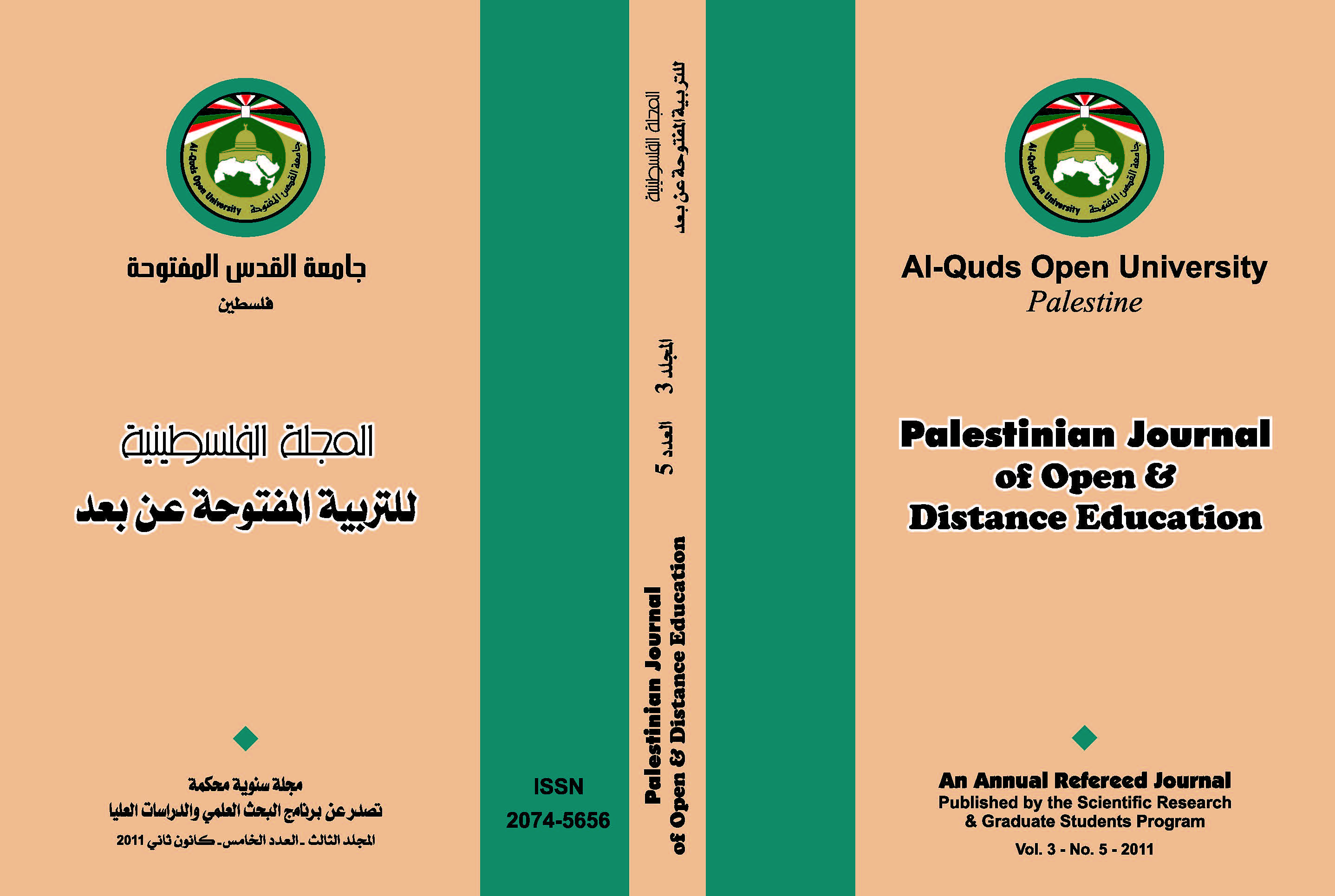The Effectiveness of E-learning by the Video in Developing the Scientific Thinking and the Attitudes of the University Students
Keywords:
e- learning, video, scientific thinking, students.Abstract
This research aimed at determining the standards for e- learning web
sites, standards for guidance styles, and the disclosure of the effectiveness
of e- learning in the development of scientific thinking and attitudes toward
web- based e- learning, in addition to identifying the effect of sex variable in
this respect.
The researchers followed the constructional method and the experimental
method.
They built a test of scientific thinking and measurement of attitudes toward
web- based e- learning, a cluster sample of (69) students, and reached several
results: identify a set of standards for the e- learning web site, and standards
of assistance and guidance, in addition to the effectiveness of e- learning in
the development of video- oriented scientific thinking and attitudes toward
web- based e- learning, and no differences in scientific thinking and attitudes
in the experimental group depending on the sex of University studentDownloads
Published
How to Cite
Issue
Section
License
- The editorial board confirms its commitment to the intellectual property rights
- Researchers also have to commit to the intellectual property rights.
- The research copyrights and publication are owned by the Journal once the researcher is notified about the approval of the paper. The scientific materials published or approved for publishing in the Journal should not be republished unless a written acknowledgment is obtained by the Deanship of Scientific Research.
- Research papers should not be published or republished unless a written acknowledgement is obtained from the Deanship of Scientific Research.
- The researcher has the right to accredit the research to himself, and to place his name on all the copies, editions and volumes published.
- The author has the right to request the accreditation of the published papers to himself.







2.png)






_2.png)

